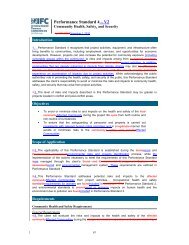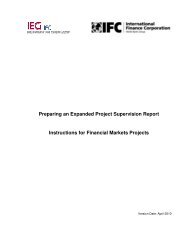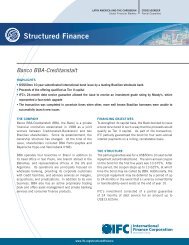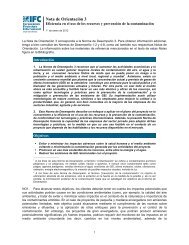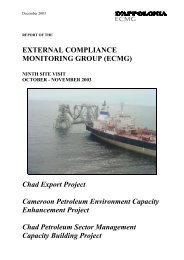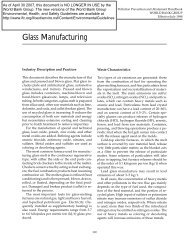Corporate Governance for Banks in Southeast Europe: Policy - IFC
Corporate Governance for Banks in Southeast Europe: Policy - IFC
Corporate Governance for Banks in Southeast Europe: Policy - IFC
You also want an ePaper? Increase the reach of your titles
YUMPU automatically turns print PDFs into web optimized ePapers that Google loves.
Recommendations:<br />
Disclosure and transparency: Disclosure is an effective governance tool. At a m<strong>in</strong>imum, banks need to<br />
disclose their accounts, governance practices and structures, risks, and risk management practices to the<br />
public on a regular and timely basis. This obligation should apply even if banks are unlisted, because there is<br />
a public <strong>in</strong>terest <strong>in</strong> the health of the f<strong>in</strong>ancial sector. <strong>Banks</strong> should disclose not only <strong>in</strong> accordance with local<br />
law, but also <strong>in</strong> accordance with best-practice standards.<br />
Disclosure requirements are often wide rang<strong>in</strong>g. Supervisors need to develop m<strong>in</strong>imum disclosure<br />
requirements. Important guidance on bank-specific disclosure is provided by the BCBS and others and should<br />
be consulted <strong>in</strong> the development of a disclosure policy. 74<br />
Web disclosure: Disclosed <strong>in</strong><strong>for</strong>mation should be provided to authorities and be easily accessible to the<br />
public on the Web.<br />
<strong>Corporate</strong> governance codes: In jurisdictions where corporate governance codes <strong>in</strong>clude a “comply or<br />
expla<strong>in</strong>” approach (such as Bulgaria, Croatia, FYR Macedonia, Montenegro, Romania, and Serbia), listed<br />
banks should be required to publish corporate governance reports and compliance statements, with detailed<br />
explanations when the recommendations of the code are not followed.<br />
Differences on audited statements: Differences of op<strong>in</strong>ion between board members and auditors on<br />
the f<strong>in</strong>ancial statements need to be resolved first by discussion. Discussions may be held first <strong>in</strong>ternally with<br />
management, then externally via <strong>in</strong>terviews with auditors, and eventually with professional audit bodies and<br />
regulators. Compromise may be required on differences where compromise is possible. The way to encourage<br />
change may be through small steps. But, under egregious circumstances, board members may need to resign<br />
when other <strong>in</strong>itiatives have failed.<br />
74 BCBS, Enhanc<strong>in</strong>g Bank Transparency (1998); Compensation Pr<strong>in</strong>ciples and Standards Assessment Methodology (2010); and Pillar III Disclosure<br />
Requirements <strong>for</strong> Remuneration (2010). See also UNCTAD, Guidance on Good Practice <strong>in</strong> <strong>Corporate</strong> <strong>Governance</strong> Disclosure (2006).<br />
<strong>Corporate</strong> <strong>Governance</strong> <strong>for</strong> <strong>Banks</strong> <strong>in</strong> <strong>Southeast</strong> <strong>Europe</strong> <strong>Policy</strong> Brief 49



